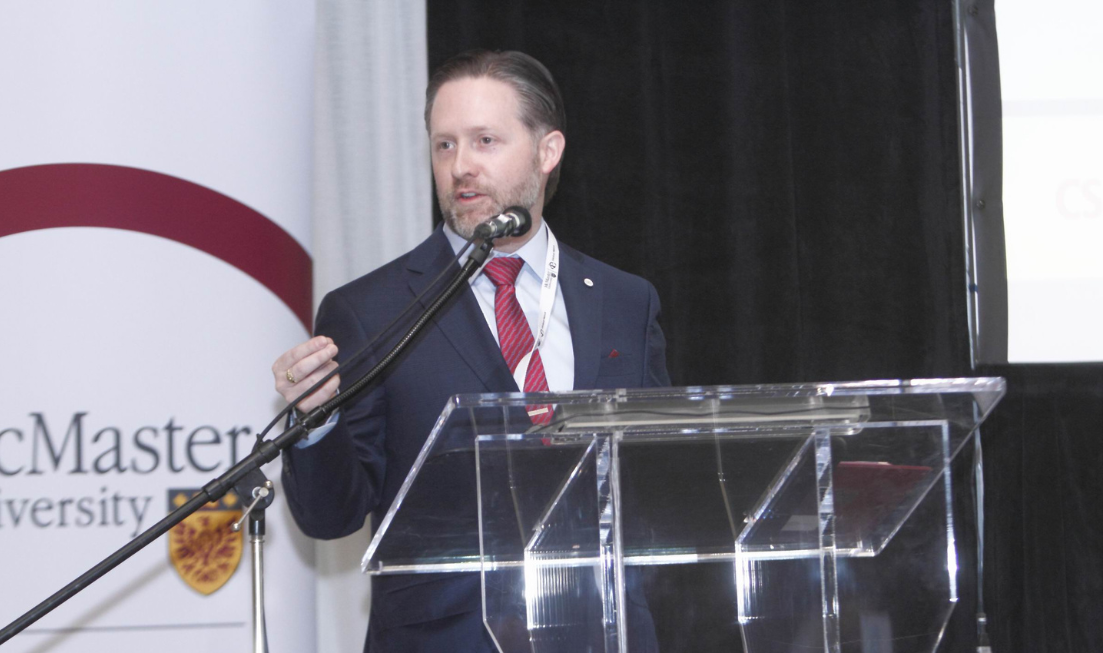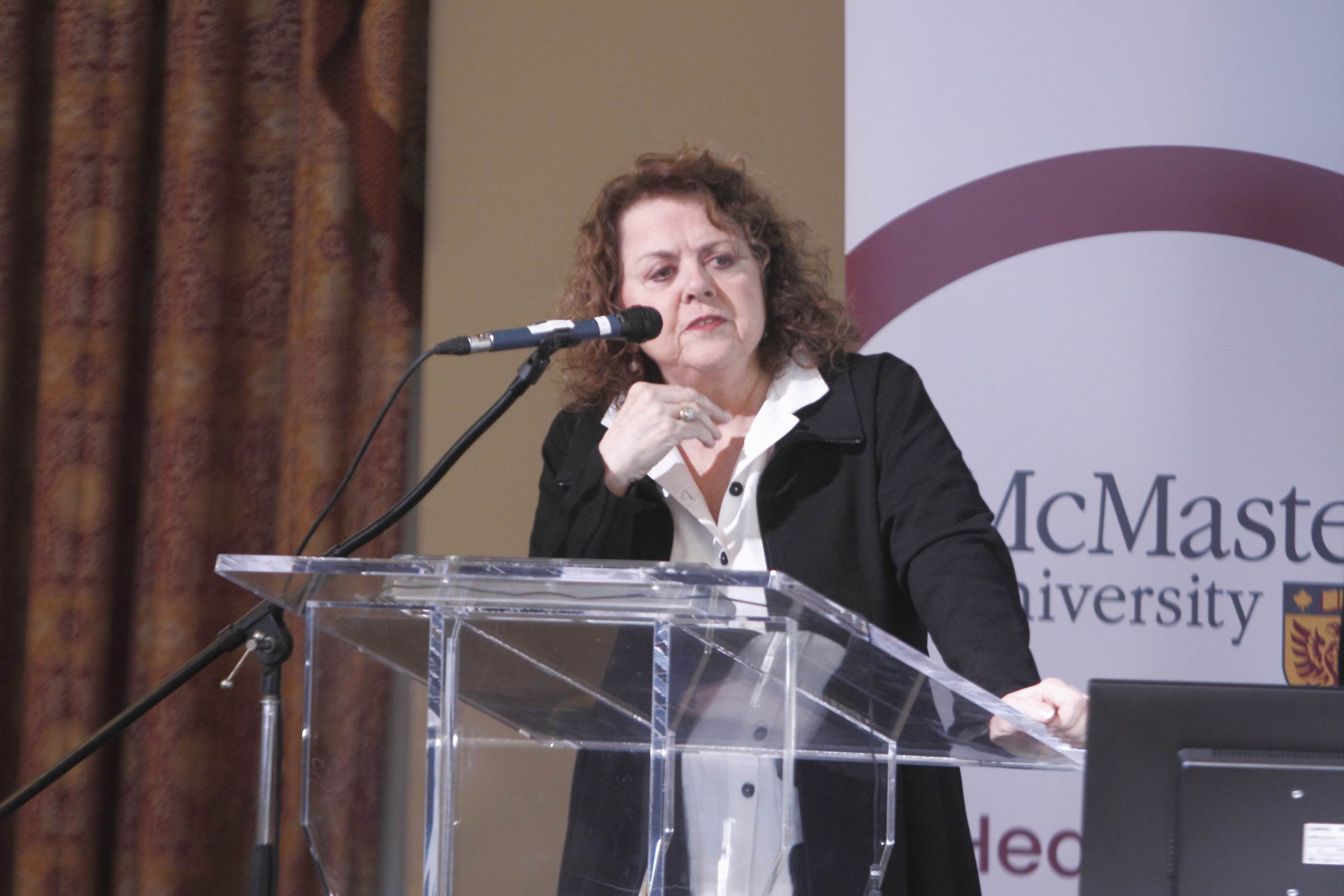Top health experts gather for McMaster symposium on vaccine research

Researcher and Global Nexus executive director Matt Miller speaks at the Future of Vaccinology Symposium. Building on McMaster’s decades of leadership in vaccinology, the event brought together hundreds of researchers, officials, industry leaders and community partners.
BY Blake Dillon
April 25, 2025
McMaster University recently convened hundreds of health experts from across sectors and around the world for a two-day conference on vaccine research.
Nearly 300 researchers, government and public health officials, industry executives, community leaders, science communicators and experts gathered to share the latest advancements in vaccine research.
“This symposium represented an opportunity for McMaster to bring together some of the field’s brightest minds for discussion, networking, and information sharing,” said David Farrar, president and vice-chancellor of McMaster.
“I have no doubt this event will lead to exciting new partnerships that will further advance the critically important area of vaccine science.”
The Future of Vaccinology 2.0, held at Liuna Station in Hamilton, was hosted by Global Nexus, a health innovation accelerator based at McMaster. The meeting marked the third major conference hosted by Global Nexus, following its first vaccinology symposium and its 2022 conference on antimicrobial resistance.
This year’s keynote speaker was author and journalist Laurie Garrett, whose coverage of disease outbreaks has earned her several top writing awards, including a Peabody, a Pulitzer and a Polk.
Her talk focused on the decline of global health due to a rapidly changing geopolitical landscape.

Other speakers included Sir Adrian Hill, director of the Jenner Institute at the University of Oxford and co-leader of the research team that produced the Oxford–AstraZeneca COVID-19 vaccine; Kieran Moore, the chief medical officer of health for the Government of Ontario; Peter Palese, a globally renowned influenza researcher from the Icahn School of Medicine at Mount Sinai; and many other world-leading experts.
Several McMaster scientists also presented their research, including Fiona Smaill, who discussed McMaster’s inhaled aerosol vaccine platform, Claudia Emerson, who explored the ethical considerations of vaccine development, and Matthew Miller, who highlighted McMaster’s advances in passive immunization research.
Discussing these topics with experts across disciplines is more critical than ever, said Miller the executive director of Global Nexus and chair of the event.
“The importance of advancing vaccine research has never been more clear,” he said in his opening remarks.
“Having endured a recent pandemic, as we face the threat of another, and as once-controlled diseases like measles spread again, we must continue to innovate, advocate, and communicate, so that vaccines can continue to safeguard public health into the future.”
Miller also premiered a nine-minute mini-documentary about the history of vaccinology at McMaster. The film highlights McMaster’s critical contributions to global vaccine research efforts, including the development of important research tools, a rabies vaccine, tuberculosis vaccines, and an inhaled COVID-19 vaccine.
The conference and the documentary are part of McMaster’s contributions to Immunization Awareness Week, which runs until April 30 this year.


